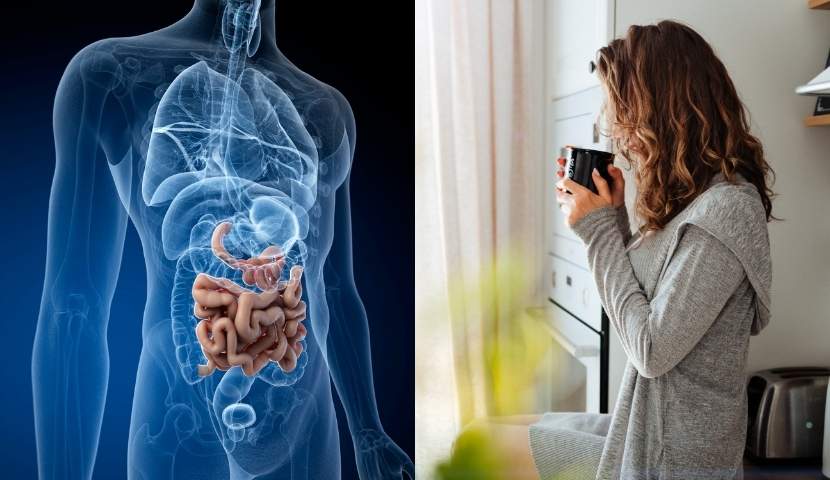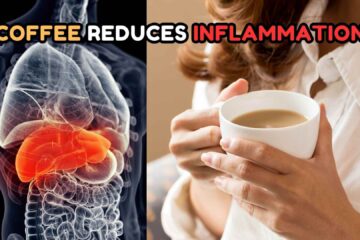The pairing of coffee and fish has intrigued many, with debates ranging from cultural taboos to scientific investigations. While some cultures discourage combining these two, others embrace it without hesitation. But what does science say about drinking coffee after consuming fish?
The answer is Yes, you can drink coffee after eating fish, but there are a few things to consider. Coffee may help with digestion by stimulating gastric acid production, which can break down the proteins and fats in fish. Additionally, coffee’s polyphenols can reduce mercury absorption from fish.
However, if you have a sensitive stomach, coffee can cause discomfort like acid reflux or bloating, especially if consumed immediately after a protein-rich meal. To avoid this, consider drinking coffee 30-60 minutes after your meal or choose low-acid coffee and fish. Always listen to your body and adjust based on your tolerance.

Let’s delve deeper into this topic, examining potential interactions, benefits, and risks.
Understanding the Interaction Between Coffee and Fish
Coffee’s Impact on Digestion
Coffee is a complex beverage containing over a thousand bioactive compounds, including caffeine, chlorogenic acids, and diterpenes. These compounds can influence the gastrointestinal (GI) tract in various ways:
- Gastric Acid Secretion: Caffeine stimulates the production of gastric acid, which can aid in the digestion of proteins and fats. However, excessive acid can lead to discomfort for some individuals.
- Gastrointestinal Motility: Coffee has been shown to enhance GI motility, potentially reducing transit time through the intestines. This effect can be beneficial for some but may lead to urgency or diarrhea in sensitive individuals.
- Gut Microbiota: Emerging research suggests that coffee consumption can influence the composition of gut microbiota, promoting the growth of beneficial bacteria. This modulation can have various health implications, including effects on digestion and immunity.
Fish and Its Nutritional Profile
Fish, especially fatty varieties like salmon, mackerel, and tuna, are rich in:
- Omega-3 Fatty Acids: Essential fats that play a crucial role in brain function, heart health, and reducing inflammation.
- High-Quality Proteins: Necessary for muscle repair, enzyme production, and overall cellular health.
- Micronutrients: Including vitamins D and B12, selenium, and iodine, all vital for various bodily functions.
However, certain fish, particularly larger predatory species, can accumulate mercury, a heavy metal that poses health risks.
Effects of Coffee After Eating Fish

Potential Benefits
1. Reducing Mercury Absorption
Research indicates that consuming coffee alongside fish can significantly reduce the absorption of methylmercury, the toxic form of mercury found in seafood. A study from the University of Montreal found that drinking coffee or tea with fish reduced mercury exposure by 50 to 60 percent.
- Mechanism: The polyphenols in coffee and tea bind to methylmercury in the digestive tract, decreasing its bioaccessibility and potential absorption into the bloodstream.
- Practical Application: Pairing your fish meal with a cup of coffee or tea, or even consuming it shortly after, may offer protective benefits against mercury exposure.
2. Enhancing Digestion
Coffee’s ability to stimulate gastric acid production can aid in the digestion of proteins and fats present in fish. This can lead to:
- Efficient Breakdown: Enhanced gastric acidity can facilitate the breakdown of complex proteins and fats, making nutrients more accessible.
- Reduced Bloating: Proper digestion may minimize feelings of fullness or bloating that some individuals experience after consuming protein-rich meals.
Potential Risks
1. Gastrointestinal Discomfort
While coffee can aid digestion, it may also cause issues for certain individuals:
- Acid Reflux and Heartburn: The increased stomach acidity from coffee can relax the lower esophageal sphincter, leading to acid reflux or heartburn.
- Stomach Irritation: For those with gastritis or sensitive stomachs, coffee’s acidity and caffeine content can exacerbate irritation, leading to discomfort or pain.
2. Nutrient Absorption Interference
Coffee contains compounds that can interfere with the absorption of certain minerals:
- Iron Absorption: Drinking coffee with meals has been shown to reduce non-heme iron absorption by up to 64%.
- Calcium and Magnesium: Caffeine can increase urinary excretion of calcium and magnesium, potentially impacting bone health over time.
However, the impact of coffee on mineral absorption varies based on individual factors and the specific minerals in question.
Coffee and Gut Health

The relationship between coffee and gut health is multifaceted:
- Positive Effects: Coffee contains antioxidants and other compounds that may promote gut health by reducing inflammation and supporting the integrity of the gut lining.
- Negative Effects: For individuals with conditions like irritable bowel syndrome (IBS) or inflammatory bowel disease (IBD), coffee can be a trigger, leading to symptoms like diarrhea, cramping, or urgency.
Moderation and individual awareness are key. Monitoring personal responses to coffee consumption can help in making informed dietary choices.
Cultural Perspectives and Traditional Beliefs
Culturally, the combination of coffee and fish varies:
- Avoidance: Some cultures believe that consuming coffee with fish can lead to adverse health effects, such as digestive disturbances or reduced nutrient absorption.
- Embrace: In other cultures, drinking coffee with fish is customary, with no apparent ill effects reported.
These beliefs often stem from traditional knowledge and anecdotal experiences rather than extensive scientific evidence.
Making an Informed Choice

When to Enjoy Coffee After Fish
Select Brewing Methods:
Opt for filtered coffee, as unfiltered methods can lead to higher levels of diterpenes, compounds that may increase cholesterol levels and irritate the digestive system. Filtered coffee is gentler on the stomach and may offer a better experience for those sensitive to acidity. Additionally, medium and light roasts tend to have lower levels of acidity compared to dark roasts, making them more suitable for pairing with fish.
Check: Top Coffee Makers 2025
Pair with Low-Acid Fish:
Fish like salmon, cod, and haddock tend to be lower in acidity compared to other types like mackerel or sardines. Consuming these types of fish may reduce the risk of digestive discomfort when followed by coffee. For individuals with sensitive stomachs or acid reflux, low-acid fish paired with a decaffeinated coffee may be the best combination.
Consider Timing:
If you’re prone to digestive discomfort, waiting for about 30 to 60 minutes after eating fish before drinking coffee might reduce any chances of irritation. This allows the stomach time to process the meal before the stimulating effects of coffee come into play. This can be especially helpful for people who experience symptoms of acid reflux or bloating.
When to Skip the Coffee
If You Have a Sensitive Stomach:
Those with gastrointestinal conditions like gastritis, peptic ulcers, or IBS should be cautious about drinking coffee after meals. The acidity and caffeine in coffee can exacerbate symptoms such as stomach pain, bloating, and heartburn. If you’re sensitive to these effects, it might be best to avoid coffee after eating fish or any protein-rich meals.
When Consuming Iron-Rich Side Dishes:
If your fish meal is accompanied by iron-rich sides like spinach or beans, drinking coffee immediately afterward might interfere with iron absorption. Coffee contains compounds like tannins that can reduce the bioavailability of non-heme iron, which is the type of iron found in plant-based foods and some fish. In such cases, it’s advisable to wait an hour or two before having coffee to ensure optimal nutrient absorption.
In Cases of Acid Reflux or GERD:
If you suffer from gastroesophageal reflux disease (GERD), consuming coffee after fish (or any meal) could worsen symptoms like heartburn and regurgitation. The acidity in coffee can relax the lower esophageal sphincter, allowing stomach acid to flow back into the esophagus, leading to discomfort. Individuals with GERD may want to avoid coffee entirely or choose decaffeinated varieties that are gentler on the digestive system.
Conclusion
Drinking coffee after eating fish is not inherently harmful for most individuals and can offer several benefits, including the reduction of mercury absorption and the enhancement of digestion. However, it is important to consider individual tolerance and any pre-existing digestive conditions when deciding whether or not to enjoy coffee after a fish meal. By making informed choices based on your body’s response, you can enjoy both coffee and fish without discomfort.
Remember, moderation is key. For those with sensitive stomachs or digestive issues, it might be best to space out the consumption of coffee and fish. Additionally, choosing lower-acid coffee and fish that are easier on the stomach can further enhance the overall dining experience. Keep an eye on how your body reacts and tailor your habits to fit your individual needs, ensuring you enjoy the best of both worlds—delicious fish and a satisfying cup of coffee.
Disclaimer: This article is for informational purposes only and should not replace professional medical advice. Always consult with a healthcare provider for concerns related to your diet, digestion, and overall health.



0 Comments